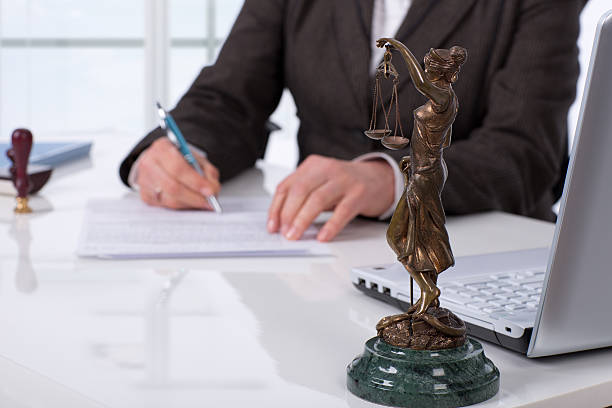Criminal Charges: How to Get Ready for Court
Presented by Tim Fleming
If you’re facing criminal charges, the days leading up to your court date can feel confusing, stressful, and overwhelming. You may be wondering what to expect, what to avoid, and how to best prepare.
At Tim Fleming Law Firm, we understand how difficult this time can be—and how critical it is to approach your court date with clarity, calm, and the right support.
Whether it’s your first charge or not, being informed and prepared is key to protecting your rights and navigating the process ahead.
🎯 What Criminal Charges Mean
Facing criminal charges does not mean you’ve been convicted. It simply means the state believes there’s enough evidence to formally accuse you of violating the law. Criminal charges can range from misdemeanors—such as minor theft or disorderly conduct—to serious felonies like assault or drug-related offenses.
Each charge carries its own legal process and possible consequences, including fines, probation, license suspension, or jail time—depending on the facts of the case and the laws in your jurisdiction.
🧭 Before the Court Date: What You Should Do
- Understand Your Charges
Make sure you fully understand what you’ve been charged with. Look at the citation, arrest record, or court documents you were given. If anything is unclear, consult legal counsel to go over the specific statutes or penalties involved.
Knowing the exact charges helps you prepare—not only for the legal proceedings but also for making informed decisions moving forward.
- Keep Track of Your Court Date
This cannot be stressed enough: do not miss your court date.
- Write it down
- Set digital reminders
- Confirm the time and location
- Arrive early on the day of court
Missing court can result in a bench warrant for your arrest, additional fines, or other consequences. Showing up on time, appropriately dressed, and prepared signals to the judge that you take the matter seriously.
- Avoid Discussing Your Case Publicly
Anything you say on social media, in texts, or even in casual conversations could potentially come back to you during your case. If you’ve been charged with a crime, limit your comments about the case to your attorney or legal representative.
- Organize Your Documentation
If you’ve been given paperwork—such as a bond agreement, court documents, or citations—gather all of it and bring it to your attorney. If you have receipts, messages, or documents related to the events in question, make copies and keep them secure.
Legal counsel can help determine what documents may be useful in court.
- Speak with a Criminal Defense Attorney
Before your court date, it’s important to have legal support. A legal representative can review the facts of your case, help you understand your options, communicate with the court, and provide insight on what to expect in the courtroom.
At Tim Fleming Law Firm, we meet with clients facing criminal charges to provide support, answer questions, and prepare them for their court appearance. We understand that no two cases are the same, and each client deserves focused attention and guidance.
🏛️ What to Expect on Court Day
Knowing what to expect when you arrive in court can ease some of the anxiety. While every courtroom and jurisdiction operates a little differently, here’s what generally happens:
➤ Security Screening
You’ll pass through security upon entering the courthouse, so leave any prohibited items at home.
➤ Courtroom Etiquette
- Dress neatly and conservatively
- Be respectful to court staff and officers
- Turn off your phone
- Address the judge as “Your Honor” if speaking
➤ Waiting for Your Case
Court dockets often include multiple cases. You may be waiting for a while before yours is called. Bring only what you need and be prepared to listen for your name.
➤ When Your Case Is Called
Depending on the stage of your case, you may be:
- Entering a plea
- Requesting more time or a continuance
- Having a bond reviewed
- Participating in a preliminary hearing
Your attorney will guide you through what to say and how to respond, if necessary.
💬 Frequently Asked Questions
Q: What should I do if I feel nervous about going to court?
That’s completely normal. The legal process can be intimidating, especially for first-time defendants. Preparing with your attorney ahead of time and understanding the process can help reduce anxiety.
Q: Will I have to speak in court?
Not necessarily. In many cases, your attorney will speak on your behalf. If the judge addresses you directly, keep your answers brief and respectful.
Q: Can my charges be dropped at the first hearing?
This depends on several factors including the nature of the charge, available evidence, and the decisions of the prosecutor or judge. Your attorney can provide insight into your particular situation.
Q: What if I don’t have anyone to watch my kids or drive me to court?
Make arrangements well in advance. If you need help identifying transportation or resources, let your attorney know—being absent or late is not looked upon favorably by the court.
Q: How can I prepare for sentencing if convicted?
If your case moves to sentencing, your attorney can help gather materials or statements that reflect your character, work history, or efforts to address the issue. Preparation is key in every stage of the process.
Final Thoughts
Facing criminal charges is serious—but it’s also a process, and one that can be navigated more clearly with the right guidance. By showing up informed, prepared, and respectful, you give yourself the best chance to move through the system with clarity and confidence.
At Tim Fleming Law Firm, we work with individuals who are navigating criminal charges, helping them understand what lies ahead and supporting them every step of the way. If you’ve been charged and have a court date coming up, reach out—we’re here to help you move forward.
📞 Call today or visit to schedule a consultation:
(251) 304-0888
🌐 www.timfleminglaw.com







